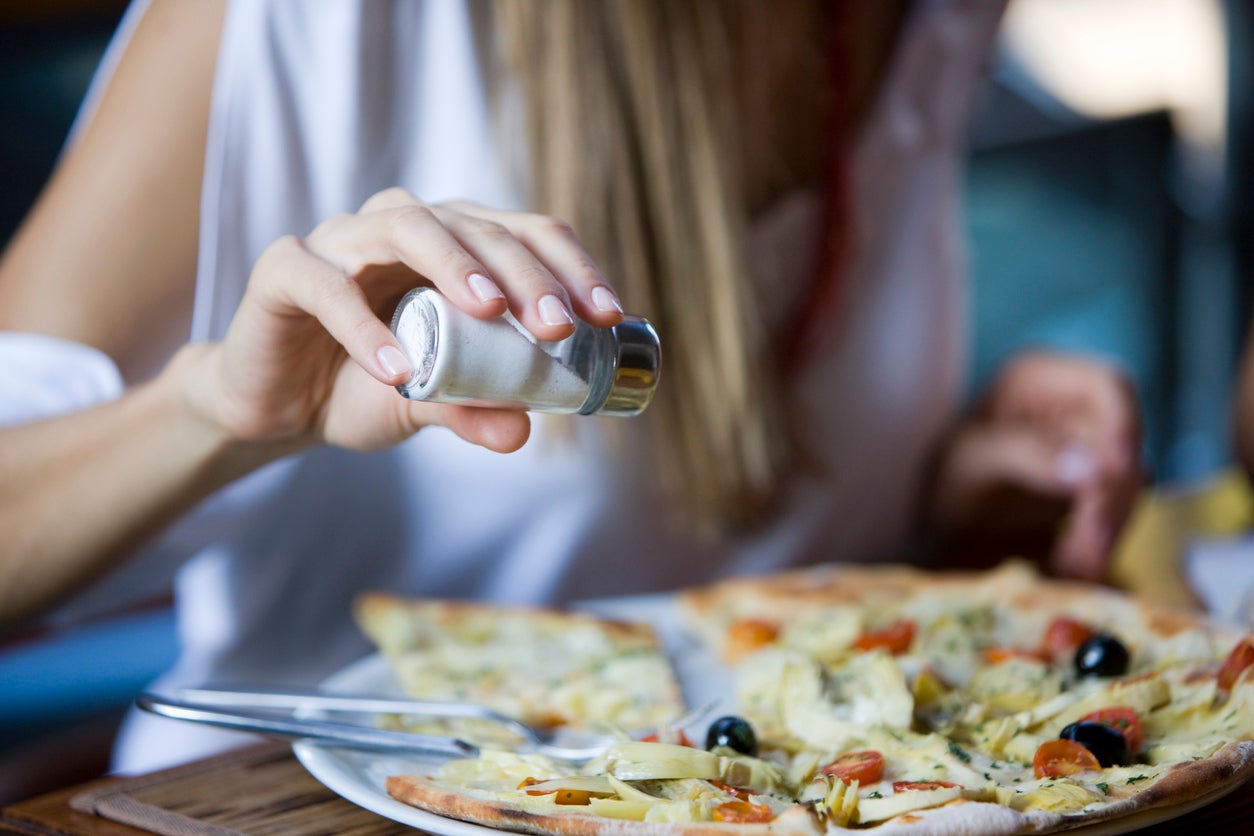Effects of high salt intake not counterbalanced by healthy diet, study claims
Cutting your salt intake could do you a whole lot of good

Your support helps us to tell the story
From reproductive rights to climate change to Big Tech, The Independent is on the ground when the story is developing. Whether it's investigating the financials of Elon Musk's pro-Trump PAC or producing our latest documentary, 'The A Word', which shines a light on the American women fighting for reproductive rights, we know how important it is to parse out the facts from the messaging.
At such a critical moment in US history, we need reporters on the ground. Your donation allows us to keep sending journalists to speak to both sides of the story.
The Independent is trusted by Americans across the entire political spectrum. And unlike many other quality news outlets, we choose not to lock Americans out of our reporting and analysis with paywalls. We believe quality journalism should be available to everyone, paid for by those who can afford it.
Your support makes all the difference.Following a healthy diet isn’t enough to counteract the detrimental effects of high salt intake, a study has warned.
The maximum quantity of salt that an adult should consume per day is 6g, according to the NHS.
However, a recent study published in Hypertension has shown that the average adult consumes far more than the recommended amount, which is putting them at risk of high blood pressure as a result.
The study, shared by Imperial College London, investigated the diets of 4,680 men and women from China, Japan, the United Kingdom and the United States using data from the INTERMAP (International Study of Macro/Micronutrients and Blood Pressure).
The participants ranged from 40 to 59 years old and their dietary regimes were tracked over a four-day period between 1997 and 1999.
Each of the individuals assessed provided two urine samples during the study. Their height, weight and blood pressure were also taken into account.
The team analysed the concentrations of sodium and potassium in the urine samples while also making a note of the nutrients that each of the participants consumed that could be associated with low blood pressure.
These included nutrients such as vitamin C, fibre and omega-3 fatty acids, the majority of which can be found in fruit, vegetables and whole grains.
Analysing the amount of sodium in the urine samples gave the researchers an accurate indication as to the salt intake of the individual, while a high level of potassium is often associated with a low blood pressure.
The team discovered that the average salt intake of adults in each of the regions included in the study was far higher than the recommended daily amount.
The average salt intake for participants was 8.5g for residents in the UK, 9.6g for those in the US, 13.4g for individuals in China and 11.7g for those in Japan.
The researchers found a strong connection between a higher salt intake and high blood pressure, even among the participants who had a high level of potassium in their urine and followed nutritious diets.
“We currently have a global epidemic of high salt intake - and high blood pressure,” said Dr Queenie Chan, joint lead author of the research from the School of Public Health at Imperial, according to Science Daily.
“This research shows there are no cheats when it comes to reducing blood pressure. Having a low salt diet is key - even if your diet is otherwise healthy and balanced.
“As a large amount of the salt in our diet comes from processed food, we are urging food manufacturers to take steps to reduce salt in their products.”
While the team’s findings conclude that a healthy diet cannot offset the harmful impact of high salt intake, they are aware that more research is needed over a longer period of time in order to provide more definite results.
Join our commenting forum
Join thought-provoking conversations, follow other Independent readers and see their replies
Comments